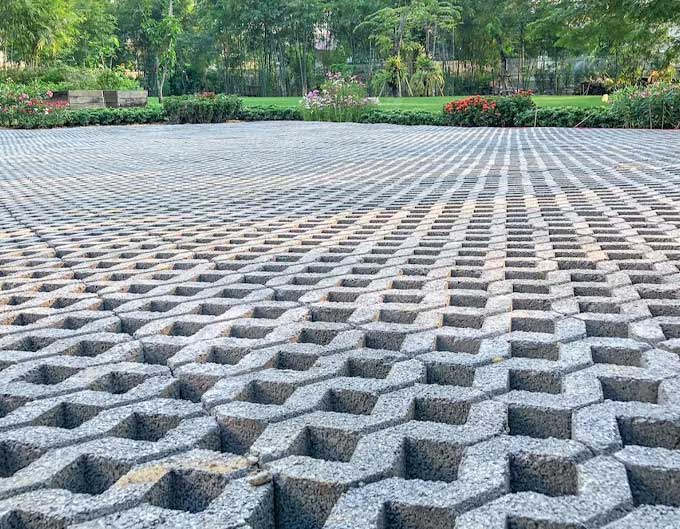Decorative cement blocks have become a go-to solution for modern interior and exterior design, offering versatility, durability, and aesthetic appeal. In this article, we will explore everything there is to know about decorative cement blocks, from their types and applications to their benefits and tips for installation. Drawing from personal experiences, we’ll provide insights that will help you make informed choices for your next project.
What Are Decorative Cement Blocks?
Decorative cement blocks are architectural units made from concrete, designed not just for structural purposes but also for aesthetic enhancement. These blocks come in various shapes, sizes, and finishes, allowing homeowners and designers to utilize them creatively in building projects.
History of Cement Blocks
To understand the popularity of decorative cement blocks, it helps to look back at their history. First introduced in the late 19th century, concrete blocks were primarily used in construction for their enduring properties. Over the years, as design aesthetics became more significant, manufacturers started producing decorative versions.
Types of Decorative Cement Blocks
There are several types of decorative cement blocks available, each suited for different applications and styles.
Standard Concrete Blocks
- Dimensions: Usually 8″x8″x16″ or 12″x12″x24″
- Uses: Commonly used in walls and foundations.

Textured Decorative Blocks
- Dimensions: Vary widely based on design.
- Uses: Ideal for visible walls, garden features, or fences.
- Benefits: They enhance visual interest with patterns and textures.
Colored Cement Blocks
- Dimensions: Standard sizes or custom orders.
- Uses: Suitable for vibrant designs in gardens and patios.
- Benefits: Offer more personalized aesthetics.

Benefits of Using Decorative Cement Blocks
Decorative cement blocks provide an array of benefits, making them a favorable choice in construction and design.
Durability and Longevity
One of the most significant advantages of cement blocks is their ability to withstand harsh weather conditions, pests, and decay. This durability makes them an excellent investment for long-term projects.

Low Maintenance
Unlike wood or some other materials, decorative cement blocks require minimal maintenance. A simple wash with soap and water can keep them looking fresh and clean.
Versatility in Design
With countless styles and colors to choose from, decorative cement blocks can be used in various applications, from walls to garden paths and decorative elements in landscaping.

Personal Experience:
In my backyard landscaping project, I incorporated textured decorative blocks around a flower bed. They not only provided structure but also added texture and depth to the space.
Applications of Decorative Cement Blocks
Here are some popular applications of decorative cement blocks:

Garden Walls
Creating a garden wall with decorative cement blocks can help define spaces and add a stylish touch.
Patios and Walkways
Using decorative blocks for patios and pathways creates a durable surface that enhances the outdoor aesthetic.

Retaining Walls
These blocks can also be used to construct retaining walls, providing both functionality and style.
Comparison Table of Applications
| Application | Benefits | Considerations |
|---|---|---|
| Garden Walls | Define space, add aesthetics | Proper drainage needed |
| Patios and Walkways | Durable, low maintenance | May require a solid base |
| Retaining Walls | Prevent soil erosion | Engineering may be needed |

Choosing the Right Decorative Cement Block
When selecting decorative cement blocks, several factors should guide your decision.
Consider Your Design Style
Are you going for a rustic or modern look? The type of block you choose can significantly impact the overall aesthetic.
Assess Functionality
Consider what purpose the blocks will serve. For load-bearing walls, ensure the blocks are suitable for this use.
Evaluate Your Budget
Decorative cement blocks range in price. Decide how much you are willing to spend before shopping around.
Installation Tips for Decorative Cement Blocks
Proper installation is crucial for achieving the best results when working with decorative cement blocks.
Preparation is Key
Before installation, make sure the area is leveled and compacted to avoid settling.
Use the Right Mortar
Select a mortar that matches the aesthetic of your blocks while also providing durability.
Check for Alignment
Regularly check your alignment while laying the blocks to ensure a straight and professional-looking finish.
Pros and Cons of Decorative Cement Blocks
Pros
- Durable and long-lasting
- Low maintenance
- Available in various designs
- Fire-resistant and pest-proof
Cons
- Heavyweight can complicate installation
- May require professional help for large projects
- Limited flexibility once set
FAQs about Decorative Cement Blocks
1. Are decorative cement blocks suitable for outdoor use?
Yes! Decorative cement blocks are ideal for outdoor uses such as garden walls and patios, thanks to their durability and weather resistance.
2. How do I clean decorative cement blocks?
Cleaning decorative cement blocks is simple; use soapy water and a scrub brush for best results. For stubborn stains, consider a pressure washer.
3. Can I customize the color of decorative cement blocks?
Yes, many suppliers offer customizable colors for cement blocks, allowing you to match them perfectly with your design vision.
4. Do decorative cement blocks provide insulation?
While they are not great insulators, using them in combination with other insulating materials can help improve energy efficiency in your home.
Conclusion
Decorative cement blocks are more than just functional building materials; they are a canvas for creativity and innovation in design. By understanding their types, benefits, applications, and installation tips, you can transform any space into something truly special. Whether you’re a DIY enthusiast or hiring professionals, decorative cement blocks can offer timeless appeal to your projects.
So, are you ready to start your project with decorative cement blocks? Embrace their versatility, and let your creativity flow!